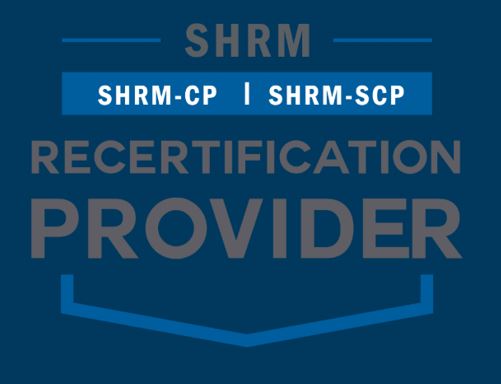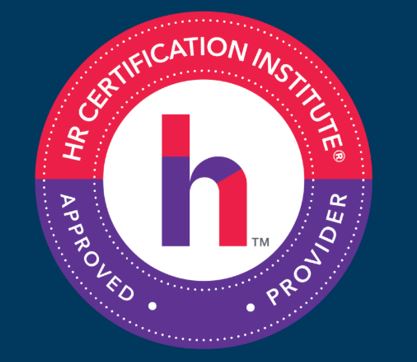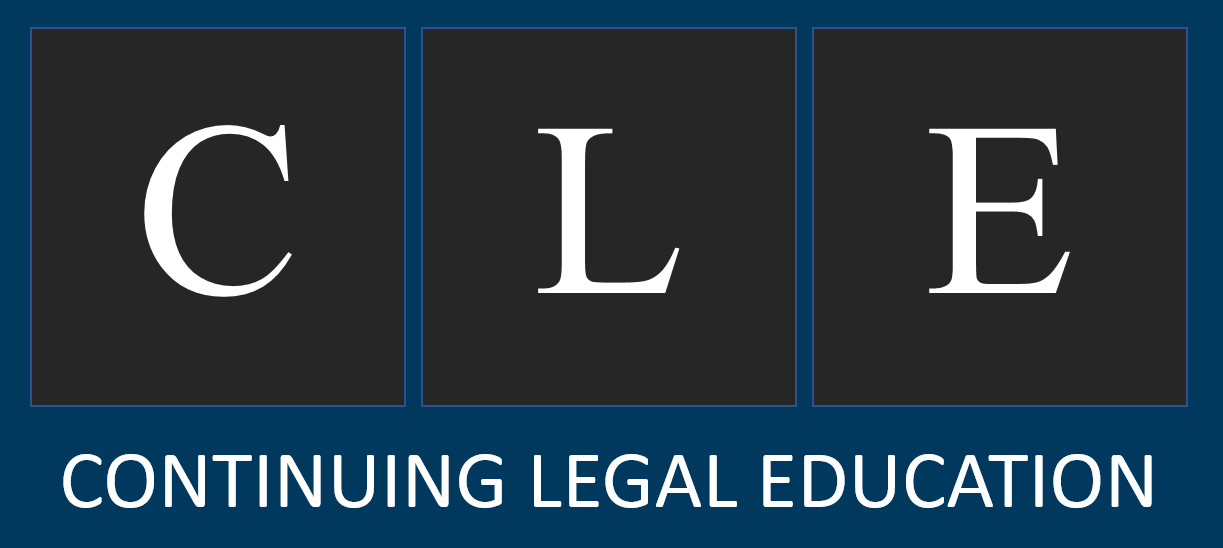CERTIFICATE IN EMPLOYEE BENEFITS LAW SEMINAR
The Certificate in Employee Benefits Law Seminar is a 4½ day program that is designed to be the most comprehensive and practical seminar available in its field. The seminar covers employee benefits issues that arise in the design and administration of employee benefit plans, the management of their assets, controversies between plan sponsors, trustees, participants and the numerous government agencies that regulate these plans. The accelerating changes in the legal environment, coupled with the complex, technical nature of the laws and regulations and increasing governmental scrutiny, make it extremely difficult to keep current in this field.
This seminar addresses this need by providing participants with insights into the many regulations, laws and their requirements, the governmental agencies which administer and enforce those laws, and the litigation and court opinions resulting from the enforcement efforts of these agencies, as well as private causes of action to enforce the provisions of these laws. The goal of this seminar is to improve the participant’s ability to identify and limit risks to their organization in dealing with employee benefit plans and to provide “best practices” insights. The program is sponsored and designed by the Institute for Applied Management & Law, Inc. in consultation with attorneys from leading law firms who regularly advise and represent a broad range of plan sponsors and plan fiduciaries in their dealings with employee benefit plans.
The Certificate in Employee Benefits Law Seminar is designed to give participants the practical information they need to be more effective professionals. This is accomplished by providing the following:
- A comprehensive understanding of the requirements of federal and state laws and regulations relating to the administration of employee benefit plans and the management of their assets and how they affect plan sponsors, plan fiduciaries, and plan service providers.
- The basic skills to administer employee benefit plans and manage their assets pursuant to the current requirements of the law, to recognize and avoid problem areas and to cope with regulatory requirements, to respond appropriately to compliance complaints, and to minimize the possibility of expensive and time-consuming litigation.
- Information regarding current regulatory, litigation, and legislative developments and trends in the employee benefits field which will enable participants to make important contributions to the administration and management of employee benefit plans performed by their organizations, and to anticipate and cope with the ever-emerging regulatory and enforcement developments in these critical areas.
“I thoroughly enjoyed the seminar. I really appreciated that the instructors allowed participants to ask questions and work through our issues and concerns.”
ENROLL NOW
Seminar Tuition: $2,375
All IAML programs are presented at attractive destination locations nationwide. They are also available in-house for you and your team. Learn more.
The Certificate in Employee Benefits Law Seminar is divided into three separate “blocks”. You can choose to attend a single block or all three. Please remember, to earn a certificate you must complete all three blocks within a two year period.
Block 1 - Retirement Plans (Monday - Tuesday)
Overview of the Statutes and Regulatory Agencies Governing Retirement Plans
- The Alphabet of Laws (ERISA, ADA, COBRA, FMLA, GATT, USERRA, HIPAA and EGTRRA) and agencies (IRS, DOL, EBSA, PBGC, EEOC, SEC and HCFA)
- ERISA Title I and Title II and the division of authority between the IRS, the Department of Labor and the PBGC
- Overview of plan types and qualification requirements
Fiduciary Rules and Investing Plan Assets
- Overview of prohibited transactions, exemptions, penalties and corrections
- Participant investment direction-Is 404(c) worth all the trouble?
- Participant investment direction in an up and down market
- When investments go bad, who is liable?
- Plan fiduciaries, cofiduciary liability and the liability of service providers
- Paying expenses from plan assets
- Why is the DOL so interested in proxy voting?
- The lessons being learned from Enron
- Investment of education versus advice
Nondiscrimination Testing for Retirement Plans
- Overview of nondiscrimination testing of participation, benefits, and contributions
- Controlled groups rules
- Highly compensated employee definition
- Coverage rules (Code Section 410(b)), including QSLOBs
- Nondiscriminatory Contributions (Code Section 401(a)(4))
- Safeharbors and general rules for contributions
- Testing benefits, rights, and features
- Cross testing and age weighted profit sharing plans
- 401(k) and 401(m) testing and safe harbor plans
- Dealing with failed 401(k) and 401(m) testing
Plan Administration
- Day-to-Day challenges of plan administration
- Participant loans
- QDROs
- Salary deferrals and catch-up contributions
- Paperless administration
- Sarbanes-Oxley and blackout periods
- ERISA Section 204(h) notices
- Suspension of benefits provisions
Plan Distributions
- When can participants take money out of the plan?
- Withholding and rollovers
- Consent rules
- Joint and survivor rules
- Hardship distributions
- Code Section 411(d)(6) Anti-cutback rules and elimination of distribution methods
- Minimum required distributions at age 70½
- Retroactive annuity starting dates
Plan Audits and IRS and DOL Voluntary Compliance Programs
- Plan Qualification: What is it?
- What happens if a plan is disqualified?
- IRS audit targets
- Correcting errors under IRS compliance programs
- Correcting errors discovered by IRS in an audit
- Late forms filing and how to resolve
- Voluntary Fiduciary Correction Program
- Compliance audits/compliance controls
Early Retirement Incentive Programs
- Designing the program to achieve goals
- Designing the program to comply with ADEA waiver rules
- Designing to comply with 401(a)(4) rules for retirement early windows
- What the courts are telling us about early retirement windows and ADEA waivers
Government and Nonprofit Employers – Qualified and Nonqualified Plans
- Who is the employer? How controlled group rules apply to government and nonprofit employees
- Qualification standards for government plans
- Code Section 403(b) plans-contribution limits and IRS audit and voluntary correction programs
- Eligible and Ineligible Code Section 457 plans
Block 2 - Benefits Plan Claims, Appeals & Litigation (Wednesday)
ERISA Compliance
- Learn which plans ERISA covers
- How to deal with state law requirements
- Plan documentation and reporting obligations to participants and the government
- Administering benefit claims
- Making your administrative decisions bullet-proof
- Managing your plans to mitigate the risk of fiduciary liability under ERISA
- Learn about new ERISA developments and how they impact your plan
- Understanding and satisfying fiduciary obligations
- Identifying and investing plan assets
- Protecting your plan’s right to reimbursement
- Avoiding the anti-cutback rule
ERISA Litigation Advantages
ERISA Litigation Hot Topics
Block 3 - Welfare Benefits Plan Issues (Thursday - Friday)
ERISA Compliance for Health & Welfare (H&W) Plans: A Hands-On Discussion for Employers and Plan Administrators
- Which welfare plans are subject to ERISA
- Reporting requirements (Form 5500)
- Disclosure requirements (SPD, SMM, etc.)
- Electronic SPDs
- Plan funding rules
- Trust requirements
- What funds are plan assets
- Cafeteria plan trust moratorium
- Fiduciary Obligations
- Prohibited transaction issues
- DOL claim procedure requirements
- ERISA 510 claims
- Impact of ERISA on claims litigation
- Preemption and state law regulation
- Introduction to the Affordable Care Act (ACA) Compliance Mandates
- Play or Pay and the Employer Obligation to Extend Health Coverage
- Cadillac tax and How to Avoid It
- Privacy issues for health plan sponsors
- Business associate contract requirements
- Impact of employment nondiscrimination laws on H & W benefits
- Age Discrimination (ADEA)
- Genetic Information Nondiscrimination Act (GINA)
- Pregnancy Discrimination Act
- Americans With Disabilities Act
- Family and Medical Leave Act (FMLA)
- Military leave (USERRA)
- QMCSOs
- Health plan mandates
- Mental Health Parity
- Medicare Secondary
- Cancer Rights Act
- Cafeteria plan basics
- Which benefits can be pre-taxed
- Who can participate
- The irrevocable election rule and change in status exceptions
- Health and Dependent Care FSAs
- Which expenses qualify
- Claim substantiation rules
- Transit/Parking Plans
- Health Savings Accounts (HSAs)
- Introduction to HRA rollover accounts
- What’s a Private Exchange and Why Do I Need One
- Which H & W plans must comply
- Basic operating rules
- What to do if you fail
- COBRA basics
- What the courts are telling us
- Forms and procedures
VIEW BROCHURE
Learn more about the seminar.
IAML’s faculty is a veritable “who’s who” of leading attorneys and consultants with excellent academic credentials and extensive real world experience. Each member has enjoyed high ratings for their presentation skills and is an industry thought leader who inspires and shares our focus of ensuring the highest quality training programs available.
Dominic DeMatties, Esq.
Partner at Alston & Bird LLP
Ashley Gillihan, Esq.
Counsel at Alston & Bird LLP
John R. Hickman, Esq.
Partner at Alston & Bird LLP
H. Douglas Hinson, Esq.
Counsel at Alston & Bird LLP
Thomas P. Schendt, Esq.
Partner at Alston & Bird LLP
Leah Singleton, Esq.
Counsel at Thompson Hine LLP
“Great job! The information will assist me and my company in effectively administering our employee benefits.”
“The instructors did a great job of keeping the participants engaged while covering material that could have been very dry.”

SHRM has pre-approved this seminar for Professional Development Credits (PDCs) toward SHRM-CP℠ or SHRM-SCP℠ Certifications.

IAML is a recognized provider of recertification credits. HR Certification Institute® has pre-approved these programs towards aPHR™, aPHRi™, PHR®, PHRca®, SPHR®, GPHR®, PHRi™ and SPHRi™ recertification.

IAML certifies that this activity conforms to the standards for approved education activities prescribed by the minimum continuing legal education rules and regulations of the states listed below.
Credit hours are based on attendance in the full 4½ day seminar. For credit information for partial program attendance or if you don’t see what you’re looking for, please email us or call 949-760-1700.
Society of Human Resource Management (SHRM)
The Institute for Applied Management & Law, Inc. is recognized by SHRM to offer Professional Development Credits (PDCs) for the SHRM-CP or SHRM-SCP. This 4½ day program has been approved for 29.75 PDCs.
HR Certification Institute (HRCI)
This 4½ day program has been approved for 29.75 HR recertification credit hours toward PHR and SPHR recertification through the HR Certification Institute (HRCI).
Continuing legal education (additional fees for CLE application and/or reporting fees may apply):
Alaska
Alaska Bar members may claim credit for attendance at CLE programs offered in or from other jurisdictions if the program has been accredited by another CLE jurisdiction (which includes California.) The State Bar of California has approved this 4½ day seminar for 29.75 hours.
Arizona
The State Bar of Arizona does not approve or accredit CLE activities for the Mandatory Continuing Legal Education requirement. This 4½ day activity may qualify for up to 29.5hours toward your annual CLE requirement for the State Bar of Arizona.
Arkansas
The Supreme Court of Arkansas Office of Professional Programs has approved this 4½ day seminar for 29.75 hours.
California
This 4½ day activity has been approved for Minimum Continuing Legal Education credits by the State Bar of California in the amount of 29.75 credit hours. IAML certifies that this activity conforms to the standards for approved education activities prescribed by the rules and regulations of the State Bar of California governing minimum, continuing legal education.
Florida
Florida Bar members may claim credit for attendance at CLE programs offered in or from other jurisdictions if the program has been accredited by another MCLE jurisdiction (which includes California.) This 4½ day seminar has been approved by the State Bar of California for 29.75 hours. Florida credits are based on a 50-minute hour, therefore this course is eligible for 36.0 MCLE credit hours.
Hawaii
Attorneys licensed in Hawaii who attend a course that has been approved for credit by a Hawaii State Bar approved jurisdiction (which includes California) may claim the CLE credits from the course or activity without seeking prior Board approval for the course or activity. This 4½ day seminar has been approved by the State Bar of California for 29.75 hours.
Maine
Maine attorneys are eligible to receive 29.75 credit hours for this 4½ day seminar through Maine’s reciprocity provision that allows credit hours for courses or activities approved by another MCLE state (which includes California) and certified by that state’s CLE regulatory authority will be accepted for identical credit by the Board of Overseers of the Bar in Maine.
Mississippi
The Mississippi Commission on CLE has approved this 4½ day seminar for 18 MCLE credit hours.
Missouri
This 4½ day course has been approved by the Missouri State Bar for 35.4 hours.
New Hampshire
NHMCLE does not approve or accredit CLE activities for the New Hampshire MCLE requirement. IAML believes this 4½ day course meets the requirements of New Hampshire Supreme Court Rule 53 and may qualify for 1785 minutes (29.75 hours) toward the annual NHMCLE requirement. New Hampshire attendees must self-determine whether a program is eligible for credit, and self-report their attendance.
New Jersey
Attorneys licensed in New Jersey who attend an out-of-state CLE course that has been approved for credit by a New Jersey State Bar approved jurisdiction (which includes California) may claim the CLE credits from the course or activity without seeking prior Board approval for the course or activity. This 4½ day seminar has been approved by the State Bar of California for 29.75 hours.
New York
An attorney completing an eligible Approved Jurisdiction course (which includes California) may claim 36.0 hours of New York CLE credit in accordance with the requirements of the Program Rules, Regulations and Guidelines. This 4½ day seminar has been approved by the State Bar of California.
North Carolina
This 4½ day course has been submitted to the North Carolina State Bar Board of Continuing Legal Education for 29.75 hours.
Ohio
This 4½ day course has been approved by the Supreme Court of Ohio Commission on Continuing Legal Education for 29.75 hours.
Pennsylvania
This 4½ day activity has been approved for Minimum Continuing Legal Education credit by the State Bar of Pennsylvania in the amount of 29.5 credit hours. IAML certifies that this activity conforms to the standards for approved education activities prescribed by the rules and regulations of the State Bar of Pennsylvania governing minimum continuing legal education.
Tennessee
This Tennessee Commission on Continuing Legal Education & Specialization has approved this 4½ day seminar for 29.75 credit hours.
Vermont
This 4½ day course has been submitted to the Vermont Supreme Court Board of Bar Examiners for 29.75 credit hours.
Wisconsin
This 4½ day course has been submitted to the Supreme Court of Wisconsin Board of Bar Examiners for 36.0 credit hours.
If you do not see your state listed here, please contact us to ask about getting your state approved. IAML requests 45 days prior notification that you wish such credit. An additional charge for CLE application and/or reporting fees may be required.
YOUR SATISFACTION IS GUARANTEED
We're confident you're going to find this program to be highly beneficial and a fantastic use of your training budget! If, for any reason, you aren't completely satisfied, we will reimburse your tuition costs.

The fee for the full 4½ day Certificate in Employee Benefits Law Seminar is $2,375.
The fee includes extensive, specially prepared seminar materials, coffee breaks, and a reception the first day. (Breakfast/lunch/dinner are on your own.) Registration fees for those wishing to enroll in only portions of the seminar are:
- Block I: $1,050 (2 days)
- Block II: $550 (1 day)
- Block III: $950 (1 ½ days)
While registrations may be accepted within the two weeks prior to the beginning of the seminar, we suggest that you call IAML to confirm space availability.
Are you eligible for a discount?
Once an organization has registered a representative for any of the full, 4½ day Certificate in Employee Benefits Law Seminars, subsequent registrants from the same organization who attend any IAML seminar or conference are entitled to a discount. A $200 discount will be given for each subsequent 4½ day registrant. A $50 discount will be given for each subsequent partial program registrant.
To receive the discount, participants need not attend the same location or date. Discounts must be requested at the time of registration and are not combinable with other discount offers.
Very attractive discounts are available to organizations which send 5 or more participants to IAML seminars in any 12 month period. Participants do not necessarily need to attend the seminar at the same location or time.
Your policy requires payment two weeks in advance. Can I register for a program that is taking place in less than two weeks?
Yes, based on space availability. You will be asked for a credit card number at the time of registration, or you may be asked to send a check via overnight mail. Because IAML’s cancellation policy requires written notification at least two weeks in advance, by registering for a program less than two weeks in advance you are liable for the entire fee, even if you do not attend.
What is your cancellation/transfer policy?
Participants will receive a full refund of any fees paid if IAML receives written notification that they will be unable to attend at least two weeks prior to their program’s starting date. Otherwise, participants are liable for the entire fee. Registrants requesting a transfer to another program within this two week period will be charged an additional fee of $150.00. You may substitute an associate at any time at no additional fee.
Is the hotel included in my enrollment fee?
You are responsible for making your own hotel reservation. IAML has made arrangements for participants to receive discounted room rates at the hotels where the seminars will be held. To reserve a room at our special rate you must make your reservation at least 35 days in advance of the seminar. If you experience any difficulty in making your hotel reservation, even if it’s less than 35 days in advance please call IAML, we may be able to assist you in securing a room at the seminar hotel.
WHICH LOCATION WORKS BEST WITH YOUR SCHEDULE?
Las Vegas, Nevada
October 6 - 10, 2025
Seminar Schedule & Faculty
Block I – Retirement Plans
George F. Cicotte, Esq., Founder of the Cicotte Law Firm
October 6-7, 2025
8:00 am – 4:00 pm
Block II – Special Employee Benefits Issues
George F. Cicotte, Esq., Founder of the Cicotte Law Firm
October 8, 2025
8:00 am – 4:00 pm
Block III – Welfare Benefit Plan Issues
John R. Hickman, Esq., Partner at Alston & Bird, LLP
October 9, 2025
8:00 am – 4:00 pm
October 10, 2025
8:00 am – 12:00 pm
*We reserve the right to change instructors when such changes are advisable for academic reasons or when circumstances are beyond our control.
Location Information
We will update hotel information when we confirm a location.


